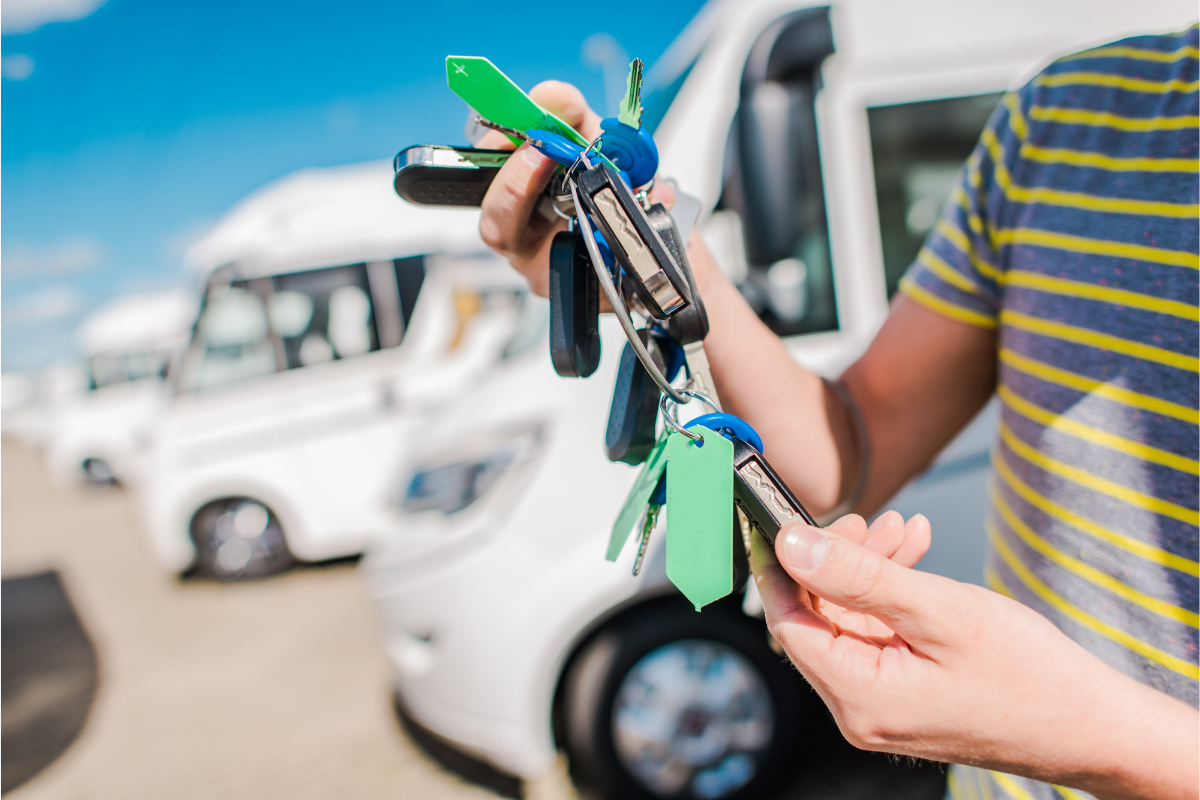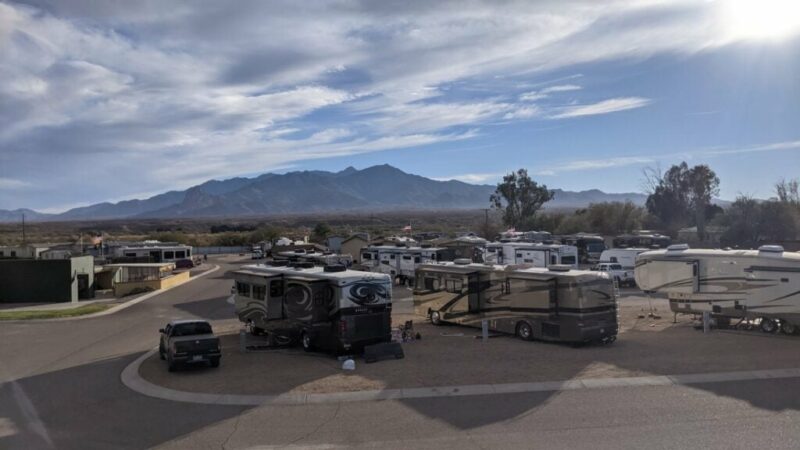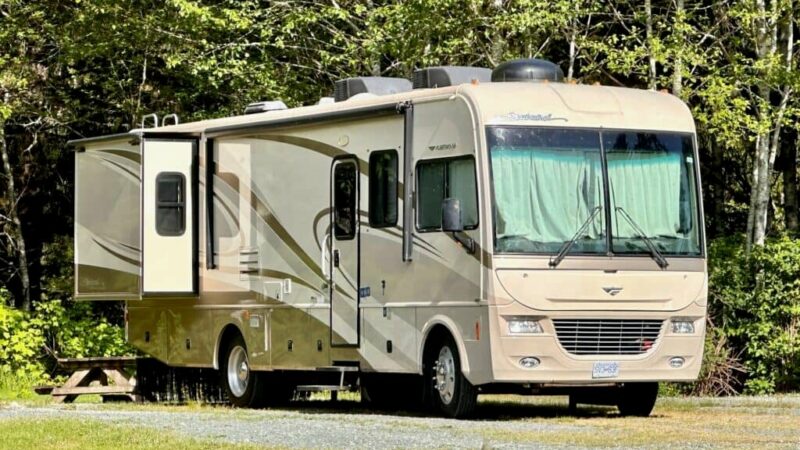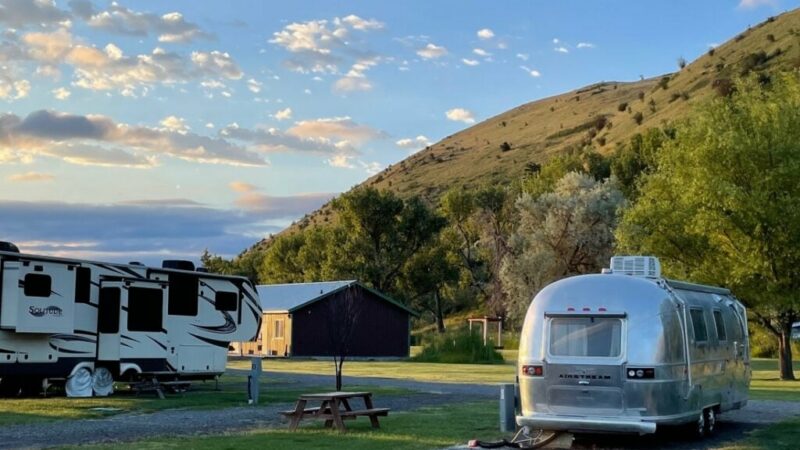How Does Selling An RV On Consignment Work?

Check out these tips about DIY RV consignment sales.
What You Should Know About Selling An RV On Consignment
Listing and trying to sell your RV on your own is a hassle. Selling an RV on consignment might be a better option. Curious how the process works? We have answers!
Selling things on consignment isn’t a new idea. Consignment of everything from vehicles to used clothing has been popular for quite some time. As with selling anything, there is the time involved in RV selling, including listing, taking photos, and of course, answering all of those phone calls and emails.
After trying to schedule times to meet with prospective buyers, and an hour of standing in your front yard, they leave “very interested”, but they are never to be heard from again. For big-ticket used items such as RVs, consignment is a good option—especially for some people who want the sale without the selling.
What is selling on consignment?
Selling anything on consignment is an agreement between two parties. One person sells another person’s property for a fee or sales commission. The two parties involved are the consigner and the consignee. In the case of selling an RV on consignment, you will be the consignor. The seller, in most cases an RV dealer, will be the consignee.
- The main benefits of consignment sales are to remove yourself from the selling process and get your RV in front of lots of people.
- And the benefits to the seller are compensation and drawing people to their stores.
Consignment is done with many items such as clothing, art, and vehicles.
How does selling an RV on consignment work?
So you want sell your RV, and you want to have it done by someone else. Here is how RV sales work through consignment.
Step 1: Find a seller
First, you will need to find a seller. This will, in most cases, be an RV dealer. If there are multiple dealers in your area, it is worth talking to them all. Find yourself the best deal for return and contract details, as well as a dealer whom you think will be the best for getting your RV sold.
Once you are set on a seller, you need to work out the details of the contract.
Step 2: Finalize an RV consignment contract
In general, you will agree upon three main things:
- How much you want to receive in payment
- How much the seller will receive in payment
- The timeline for the contract
The seller will either receive a set percentage of the sale price or a set dollar amount. If working on a percentage, they may be more focused on getting a higher price for your RV, netting you a few extra bucks!
The contract will have a start date and end date. The start date is the day the seller will take possession of your RV. And the end date is when the contract expires, at which point it will have to be renegotiated. Oftentimes the expiration date can be extended, if you choose.
Once the contract starts, the seller has complete possession of your RV. You cannot use your RV for the duration of the contract, so get your last trip in before turning it over.
The seller has until the end of the contract to sell the RV. If you find a buyer prior to that, you must send them to the seller. The sale will have to be completed through them.
Step 3: Get consignment insurance
All RV consignment insurance policies are different. In most cases, once your RV is in possession of the seller, your insurance will no longer cover your RV. Any reputable RV dealer will have insurance on their property and inventory, but this policy likely will not cover your RV.
It is in your best interest to obtain consignment insurance for the period of your contract. This may be added to your current insurance, or it may be a separate policy through another company that offers this specialty insurance.
What RV consignment fees are you responsible for?
The dealer may have administrative fees, fees for premium or priority advertising, and cleaning fees.
These additional fees should all be hashed out in the contract negotiations. Agree on all additional fees prior to signing the contract. Once it is signed, you are responsible for any fees included.
Ask lots of questions about how often and where they advertise, where your RV will be positioned on the lot, and what time of year they sell the most RVs.
What happens after the RV consignment sale?
Ah, the day you’ve been waiting for. The RV consignment dealer calls to say your RV has sold! Now the obvious question is, how and when do you get your money?
These details are already set out during your contract signing. Once your RV is sold and the dealer receives the payment, your money should be transferred almost immediately. Again in your contract, there may be an arrangement such as within 72 hours or 3 business days.
Having the money electronically transferred is likely your easiest and fastest bet.
Is selling an RV on consignment for you? If you want a hands-off selling experience, then yes. If you prefer to be involved in the negotiations and hustle of the sale, then no.
RV sales are hot right now. Selling your RV quickly shouldn’t be an issue. Because of the low inventory, RV dealers may be willing to give you top price and buy your RV outright. This is something you may consider instead of the consignment or private sale route.
Before selling your RV yourself, it is worthwhile knowing how selling an RV on consignment works. You may also want to consider getting a free valuation from National Vehicle before selling your RV.
Forums such as iRV2.com and blog sites like RV LIFE, Do It Yourself RV, and Camper Report provide all the information you need to enjoy your RV. You’ll also find brand-specific information on additional forums like Air Forums, Forest River Forums, and Jayco Owners Forum.
Continue reading:
The post How Does Selling An RV On Consignment Work? appeared first on RV LIFE.







